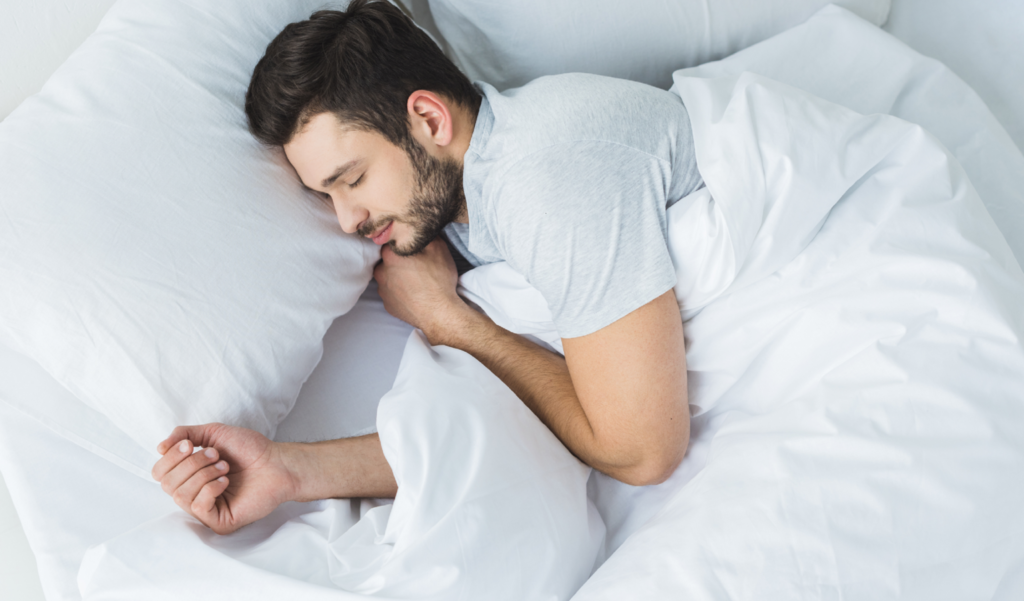Looking at the clock? All night long? Sure it happens to everyone every once in a while, but if it happens more often to you, you may have insomnia.
According to the Sleep Health Foundation, one in three people suffer from mild insomnia, so you’ve got plenty of company. But knowing that you’re not alone isn’t much company when you’re staring at the ceiling for hours. Right?!
I love sleep. I love sleep so much I spend about a third of my life doing it. I started sleeping at a very young age, so I have lots of experience to share with you. I also love being awake and productive in my daytime hours and a good night’s rest is a major factor in keeping me bright-eyed and bushy-tailed while I work for you, smoothing out your real estate transactions.
I’ve got a few tips and insights to share and I’ve brought in a few famous sleep experts from history to share their own sleep wisdom. Together, we’ll guide you to sounder zzzz’s and more alert days.
1. “The best bridge between despair and hope is a good night’s sleep.” — E. Joseph Cossman
Stress and anxiety are a big part of keeping those peepers wide open all night long as the thoughts in your mind go around and around on their never-ending hamster wheel. Ironically, a major cure-all for those stresses and anxieties is sleep. Sleep gives you a break from the worries of your day and lets your subconscious take over those knotty problems for you. It’s not unusual to wake up in the morning with a new perspective and a shiny new solution all figured out.
So what to do? How do you calm those demons enough so you can go to sleep and reap those problem-solving benefits? First, put down the screens. No more bedtime doom scrolling. It’s not solving the problems of the world and it’s not helping you one bit. About a half-hour or more before bedtime, unplug and do something that calms and relaxes you. Music, lavender scents, soft lighting, reading a good book… It’s like a romantic date with yourself. Also, be sure to avoid heavy meals and caffeine before bed.
2. “Even a soul submerged in sleep is hard at work and helps make something of the world.” — Heraclitus
I can’t tell you how many times I’ve heard people say “I’ll sleep when I’m dead.” I’m guilty of this as well. They seem to think that they only have value on this planet as long as they are being productive. They don’t realize it, but their go-go-go attitude might be hurrying their eternal sleep to their doorstep. According to Johns Hopkins, sleep deprivation lowers immunity and bumps up the risk of heart disease, diabetes, and cancer. Eek, really?!
Sleeping and dreaming isn’t doing nothing. It’s doing something very important. Dreaming is free therapy that takes place overnight. It’s when your brain chemistry and processes let you safely re-process upsetting memories, so instead of creating trauma, your painful emotional experiences become lessons that help you grow on a personal level.
Keeping your bedroom cool at night is a great way to help you fall asleep and stay asleep. So take off that extra blanket and stop swaddling yourself in layers of flannel. It may help you start the night toasty and comfy, but next thing you know, you’ll be kicking your leg out from under the covers in an attempt to air condition yourself. If cold feet are a problem for you at night, just wear socks and/or drape that extra blanket over your feet. The rest of you will sleep better without it.
3. “Your future depends on your dreams, so go to sleep.” — Mesut Barazany
The memory work and problem-solving of REM sleep is important, but the other phases of sleep play their role, too, in keeping us youthful and healthy. Face it, our brains and bodies need a rest. It’s a chance to rejuvenate and come back stronger the next morning. The rest you get at night helps you be healthy for your future days.
Sleep and dreams also boost creativity. Your memories and knowledge swirl around and put together new combinations that could be the making of your future. Mary Shelley’s novel Frankenstein, Paul McCartney’s song Yesterday, Einstein’s insights into the nature of the world – take away the creativity that occurs with sleeping and dreaming and poof! They all disappear.
Sometimes when those great ideas hit, they wake you right out of a sound sleep and keep pestering you until you get up and write them down. So next time that happens, don’t fight it! Get up and jot down the notes. Once your brain knows your idea for the Great American Novel won’t disappear it will relax, and so can you. In fact, you may want to make a few minutes of journaling on one of your non-screen journals before bed go-to activities. Start with three things you are grateful for. Get your thoughts down on paper and let them rest for the night. With your brain calmed down you can go to bed.
4. “A well-spent day brings happy sleep.” — Leonardo da Vinci
This is so true! But keep in mind that a rotten night’s sleep has its effects, too. According to the Sleep Foundation sleepiness “clouds your thinking and causes you to make more errors, react slower, and use poorer judgment than you do when you’re alert.” The Three Mile Island nuclear power plant incident, the Chernobyl nuclear plant disaster, the Exxon Valdez oil tanker spill, and the Space Shuttle Challenger accident were all impacted by key workers who were sleep-deprived.
If you’ve been sleeping poorly, park the heavy equipment and put any important decisions on the back burner. But at the same time, if you just moan and drag yourself around after a bad night’s sleep, you’re setting yourself up for another poor night. Your body wants physical activity, your brain wants to be challenged, and your spirit wants to be fed. Listen to Leonardo da Vinci and do your best to have an active and well-spent day – just avoid risky behaviors. After an active day of exercising your body, brain, and spirit, falling asleep and staying asleep will be much easier.
5. “Sleep is the best meditation.” — Dalai Lama
In the early stages of sleep, your body goes through physiological changes. Your heart rate decreases, your blood pressure goes down, your breathing slows and the parts of your brain that control sleep gets activated. It’s like a deep meditative state. In fact, practicing meditation can help tremendously in overcoming insomnia.
Meditation helps you relax, it lowers your heart rate, it decreases your blood pressure, it slows your breathing… If you’re getting a sense of deja vu, it’s because these are the same things that happen as you fall asleep. Along with the benefits of calming the thoughts in your head and reducing stress, doing a few minutes of meditation before bed is a sleepy-time winner, especially when you start by making your bedroom quiet and dark. Click here for some before-bed meditation styles from Healthline.
6. “Happiness consists of getting enough sleep. Just that, nothing more.” — Robert A. Heinlein
As you avoid heavy meals and caffeine at night, turn off the screens and electronics, cool your bedroom, jot down your thoughts and ideas so you can set them aside, and start your before-bed meditation in your quiet, dark room you are well on your way to establishing the final piece of the puzzle for a healthier sleep-life. You are creating a regular sleep schedule.
Yes, a regular sleep schedule with a regular bedtime and a regular wake-time. Your body lives in rhythms, so set your alarm and get up around the same time every morning. Sleeping in and spending the day taking naps to “make up sleep” won’t help you fall asleep when night time comes. Teaching your body a new day time/night time dance will. And if it’s stress and worries about buying or selling your home or office that’s keeping you up at night, call me.
Making your transactions go smoothly is my stock in trade. I’m Stephen Burchard, The Desert Bowtie Realtor, taking the (k)nots out of real estate


